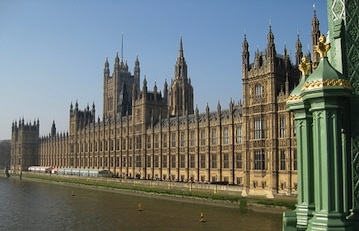An MP who represents a constituency which is home to a number of major pension providers has raised serious concerns over how the Government's retirement guidance service will be paid for.
Crispin Blunt, the MP for Reigate, Conservative, questioned Pensions Minister Steve Webb, Liberal Democrat, in the House of Commons as the second reading of the pension reforms bill was debated.
Mr Blunt, whose constituency includes Legal and General, Partnership, Just Retirement and Fidelity, spoke of his fears on the true amount that a levy will cost firms.
But Mr Webb insisted this would "modest".
{desktop}{/desktop}{mobile}{/mobile}
Mr Blunt said: "I am very concerned about the levy that is coming in to pay for the guidance, and about the difference between the £20 million that the Government have set aside to begin funding the guidance and the reality of what realistic guidance actually requires.
"If the Minister or I wanted an evaluation of our pensions for the purposes of a court—for divorce, for example—the amount of work required would cost about £2,000. There are 500,000 people waiting for and needing guidance. It will be £1 billion."
Mr Webb responded: "There is clearly a world of difference between a guidance conversion to get people to base camp—enabling them to understand concepts and helping them to know where to go for further information and advice—and a sophisticated, individualised, tailored piece of independent financial advice recommending products.
"There is a whole spectrum, and the guidance is very much at not the "cheap", which is the wrong word, but the budget end of that scale.
"We do not envisage a levy on the financial services industry to pay for full-blown, regulated, independent, tailored financial advice.
"The guidance will not be like that, but it will certainly be cost-efficient.
"Although we will honour the Chancellor's pledge for face-to-face guidance when people want it, we anticipate that many people will want telephone conversations, websites and all the rest of it, much of which is substantially cheaper than the very expensive sort of advice he mentioned."
He added the £20 million was not an estimate of the annual recurring cost of providing guidance, rather a one-off fund to get it started, to help create websites, literature and infrastructure.
Mr Blunt said he believes the service should be closer to advice than guidance due to the complexity and importance of the choices.
He added: "I am concerned by the suggestion that the levy will be directed at firms that will benefit, whereas we want a competitive market which highly entrepreneurial firms that can put together new products will enter to win business from people who have left their money sitting or have not moved it, and who take annuities from existing providers and the rest.
"There is a dichotomy there."
Mr Webb replied that innovation will happen over the next decade and said: "I have seen no evidence that the envisaged level of levy will hamper entry into the market."
He said there will be huge additional revenues for an already large industry through auto-enrolment.
He said: "Relative to that, the scale of the levy for the guidance is modest, so I think that I can reassure him about that issue of scale."

